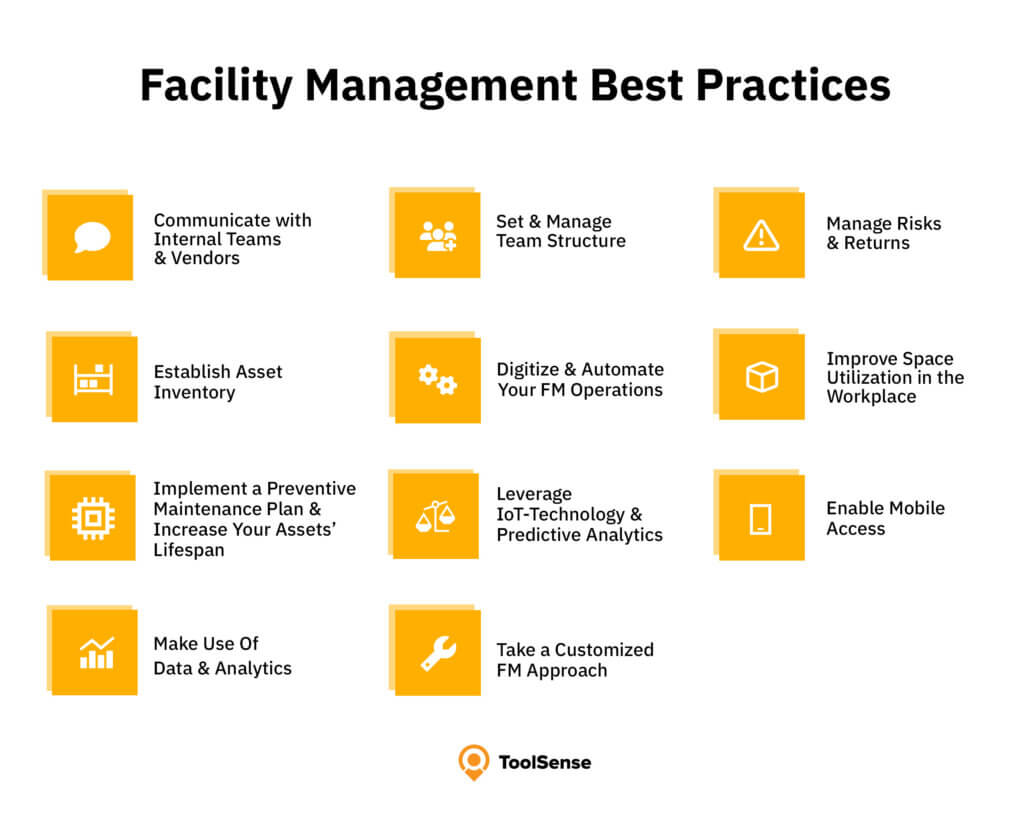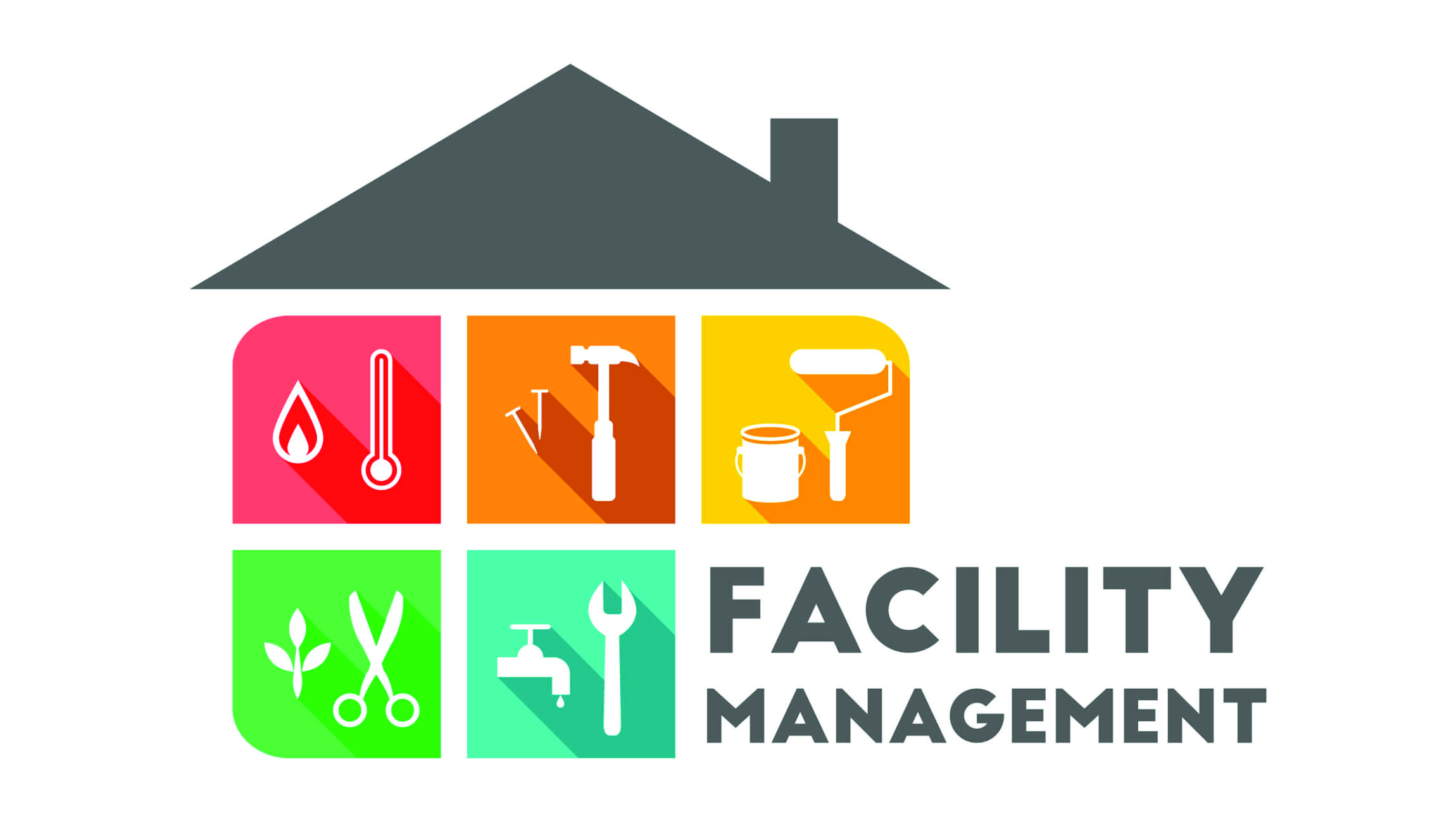Facility Management-- Streamlined Operations and Price Cost Savings
Secret Fads Forming the Future of Facility Management in 2024
As we expect 2024, the landscape of center management is positioned for significant change, driven by numerous vital trends. The integration of wise structure modern technologies and a change in the direction of data-driven decision-making promise to enhance operational effectiveness while prioritizing sustainability in method. In addition, the emergence of hybrid work models is reshaping office environments, necessitating ingenious style services that deal with progressing staff member demands. In the middle of these adjustments, the emphasis on resident wellness continues to obtain grip, highlighting the value of a healthy workplace. How these fads will certainly materialize in practice remains a crucial question for sector experts.
Smart Structure Technologies

Smart building technologies include a wide variety of systems, consisting of intelligent lights, cooling and heating controls, and safety and security systems. By incorporating these systems, center managers can check and adjust parameters in real-time, leading to substantial reductions in power waste and functional prices. Wise sensors can identify occupancy degrees and change lights and temperature appropriately, making certain that energy is only made use of when required.
Additionally, these innovations help with boosted data collection, allowing companies to track usage patterns and identify possibilities for further renovations. The implementation of wise building modern technologies not just adds to sustainability objectives yet additionally develops healthier job atmospheres that can increase employee productivity and fulfillment.
As we move right into 2024, the fostering of clever structure innovations will likely increase, reflecting a broader change in the direction of more smart, receptive, and sustainable center monitoring practices.
Data-Driven Choice Making
Progressively, organizations are leveraging data-driven decision making to boost center administration techniques. By taking advantage of data analytics, center supervisors can acquire workable understandings that substantially enhance operational performance and source appropriation. The combination of sophisticated modern technologies, such as IoT sensors and real-time monitoring systems, enables the collection of huge quantities of information on building efficiency, tenancy rates, and energy usage.
This riches of details enables facility supervisors to recognize patterns, predict upkeep needs, and proactively address problems before they escalate. Anticipating analytics can anticipate equipment failings, minimizing downtime and repair prices. Furthermore, information visualization devices help with better interaction amongst stakeholders, making sure that notified decisions are made collaboratively.
Additionally, data-driven methods enhance strategic planning by enabling center managers to evaluate the performance of current practices and make educated selections concerning investments in innovation or framework. As companies progressively prioritize functional quality, data-driven decision production is positioned to come to be a foundation of successful facility management approaches in 2024 and beyond. Inevitably, the capability to leverage data successfully will equip companies to develop more reliable, productive, and resilient facilities.
Sustainability and Environment-friendly Practices
The focus on data-driven choice making naturally lines up with the growing concentrate on sustainability and eco-friendly practices within center administration. As companies significantly focus on ecological duty, facility supervisors are leveraging analytics to enhance source use, decrease waste, and minimize carbon footprints. This tactical approach makes it possible for the assimilation of energy-efficient systems, such as LED illumination, clever heating and cooling controls, and renewable resource sources right into facility procedures.
Furthermore, the application of sustainable techniques prolongs past energy intake. Center supervisors are advertising and embracing eco-friendly materials reusing campaigns to produce a circular economy within their facilities. This not just boosts the ecological account of the organization however also fosters a culture of sustainability among staff members.
Compliance with environmental policies is another essential facet driving the fostering of green techniques. By using data analytics, facility managers can check conformity metrics and recognize locations for enhancement, ensuring adherence to regional and worldwide sustainability standards.
Hybrid Job Versions
A significant change towards crossbreed work designs is reshaping the landscape of facility management in 2024. This paradigm incorporates remote and in-office work, necessitating a reevaluation of space utilization, source appropriation, and employee engagement approaches. Organizations are significantly acknowledging This Site the value of adaptable work areas that provide to diverse requirements and preferences.
Center supervisors should adjust by applying versatile office layouts that support collaborative efforts while offering locations for focused work. This consists of the integration of modern technology to facilitate seamless interaction and cooperation among in-office and remote staff members. Smart building remedies, furnished with sensing units and analytics, permit real-time monitoring of space use, allowing companies to maximize their environments effectively.
Moreover, hybrid work versions highlight the requirement for reliable facility administration that focuses on employee experience. This encompasses not just great site technology and space style however also the growth of plans that promote a balanced work-life dynamic. As firms browse this shift, the role of center management ends up being critical in producing a nimble workplace that promotes performance and drives organizational success. In essence, the hybrid work model is revolutionizing center monitoring, encouraging a positive strategy to satisfy the evolving needs of the labor force.
Enhanced Occupant Wellness
As organizations embrace hybrid job versions, an increased emphasis on resident health is ending up being essential to facility administration techniques. Facility Management. This change acknowledges that a healthy and balanced and completely satisfied labor force straight influences efficiency and retention rates. Center supervisors are now focusing on atmospheres that advertise physical and mental well-being, incorporating components such as all-natural illumination, biophilic layout, and obtainable wellness sources

Innovation plays a crucial duty in this development. Smart building systems can monitor ecological aspects and readjust settings in real-time, making sure optimum comfort degrees - Facility Management. Feedback mechanisms, such as tenancy sensing units and staff member surveys, allow center managers to continually improve wellness efforts based on owner requirements.

Verdict
In 2024, the future of center administration will be substantially affected by the combination of wise building technologies and data-driven decision-making, promoting improved operational efficiency. Sustainability initiatives will prioritize environmentally friendly techniques, while the introduction of crossbreed job designs will demand adaptable workplace styles. A heightened emphasis on my explanation passenger wellness with advanced Cooling and heating systems and biophilic design will certainly contribute to healthier work settings. These fads jointly underscore the developing landscape of facility monitoring in reaction to modern obstacles and opportunities.
Facility managers are promoting and taking on environmentally friendly materials recycling initiatives to create a round economic situation within their facilities.A considerable change in the direction of crossbreed job models is improving the landscape of facility management in 2024.Moreover, crossbreed work designs emphasize the need for efficient center management that focuses on employee experience.As organizations accept hybrid work versions, an enhanced focus on occupant health is becoming indispensable to center management approaches.In 2024, the future of facility management will certainly be considerably affected by the combination of clever building modern technologies and data-driven decision-making, promoting improved functional efficiency.